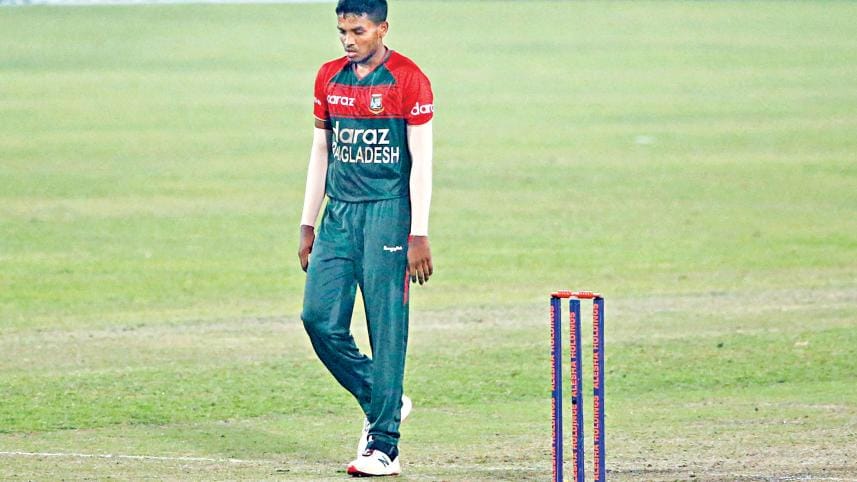Shohidul saga a lesson for future athletes

Bangladesh pacer Shohidul Islam's 10-month suspension from all forms of cricket after the 27-year-old breached Section 2.1 of the ICC Anti-Doping Code should serve as a lesson to all young cricketers in the country when it comes to taking medicines, even for personal treatment.
On Thursday, the ICC briefed in a press release that Shohidul's urine sample was collected on March 4 and was found to contain the banned substance, Clomiphene. Shohidul did not intentionally consume the prohibited substance. It was prescribed by his doctor without the consent of the Bangladesh Cricket Board's medical team.
The question is why, despite yearly anti-doping programmes by the BCB, someone made the mistake and paid a heavy price? According to the BCB's chief physician Dr Debashish Chowdhury, it is a player's responsibility to stay vigilant about such serious issues to avoid any disaster.
"According to ICC guidelines, the BCB arranges anti-doping awareness crash courses once or twice a year. We conducted the course this year in February and we arrange it with the support of the Bangladesh Olympic Association every year. It is one of the ICC's conditions that all the member boards must meet. The question is how attentive are the ones that attend the programme. We do our work. But do the players listen? If they don't understand, they can ask us. Among a hundred players, I think a majority follow instructions. One or two players may have failed to comprehend the instructions properly," Debashish told The Daily Star.
According to the veteran physician, it is important that doctors who hand out prescriptions for players be aware of banned substances.
"In Shohidul's case, he took the medicine as per the doctor's prescription. He thought that it was legal, legitimate because his doctor prescribed it. If the doctor knew that the drug was prohibited, I am sure the doctor would have not prescribed it. Who do you teach and make aware, the doctors or players? The second thing is since you are over 18, an adult. Anything found in your body is your responsibility," he added.
According to Debashish, the only thing to do was raise awareness. He added that there were no restrictions from the ICC in taking such medicines for therapeutic uses, but that the governing body would need to be informed and hand out an exemption.
"Awareness is important. Since Shohidul tested positive, the media is writing about this issue now. So the players will also be aware that if they take such medicines, they need to inform the board. There is no restriction in taking such drugs, but only if he informs first. This is called Therapeutic Use Exemption or TUE, which is given when a medicine is for therapeutic use and not for performance enhancement At times there can be alternative medicines and if they inform us we can prescribe alternative drugs," Debashish added.



 For all latest news, follow The Daily Star's Google News channel.
For all latest news, follow The Daily Star's Google News channel.
Comments